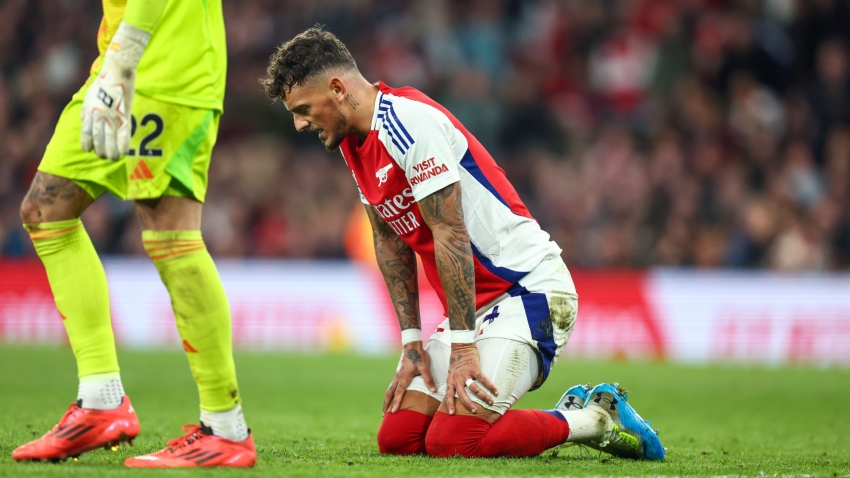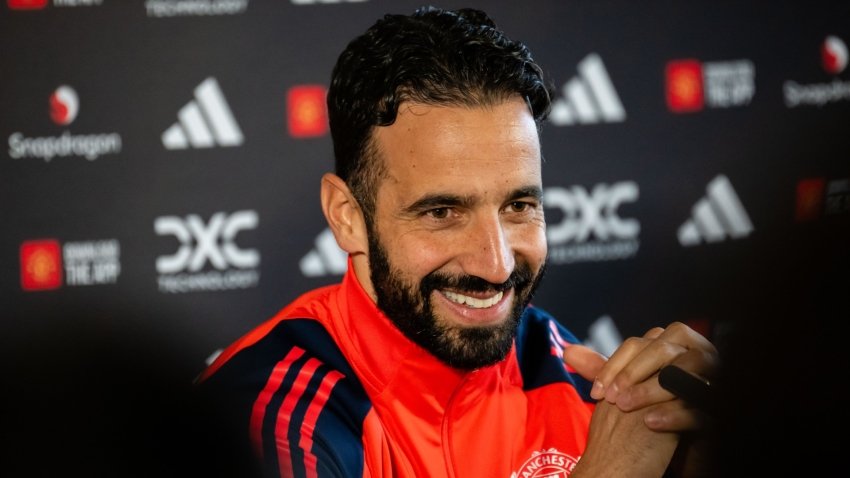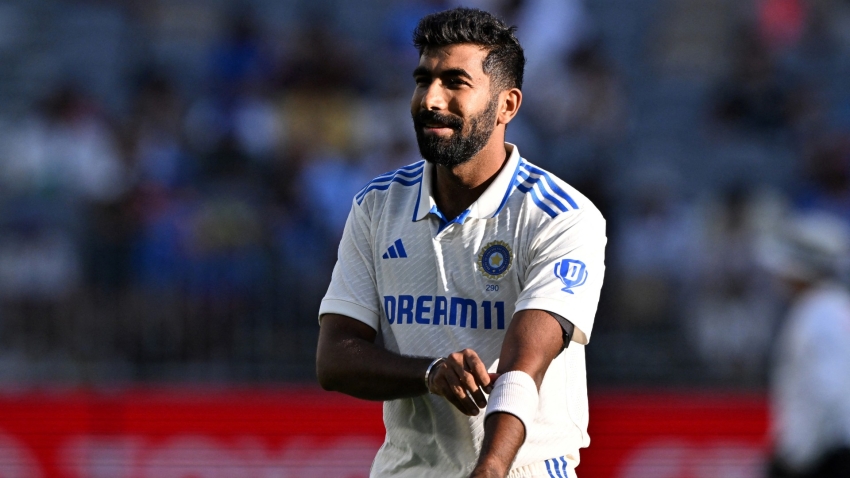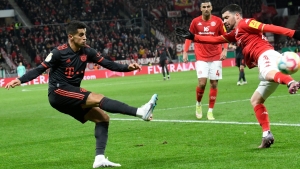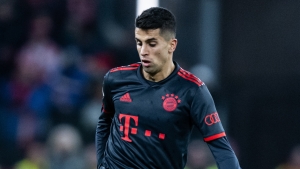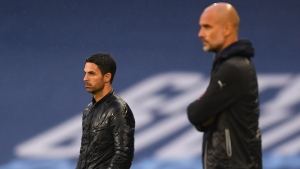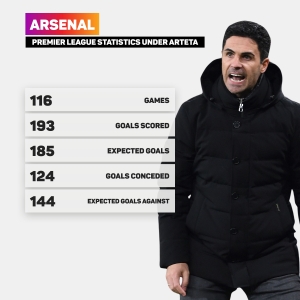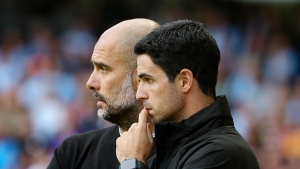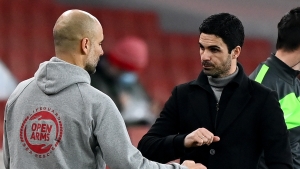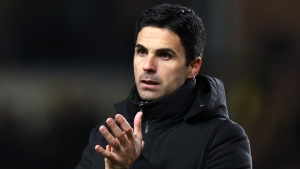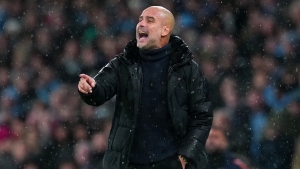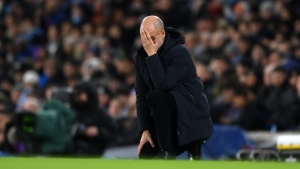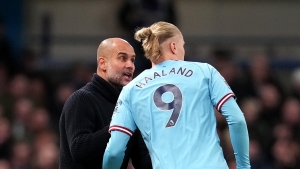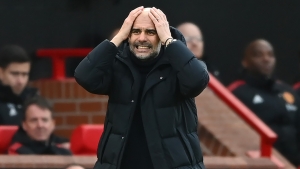Mikel Arteta would have been an ideal replacement for Pep Guardiola at Manchester City.
That is according to Guardiola himself, who had Arteta as part of his coaching staff at the Etihad Stadium from 2016 up until Arsenal hired their former midfielder as Unai Emery's replacement just over three years later.
Arteta has needed time at Arsenal, but this year they are not only title contenders, but hold a healthy five-point lead over City at the summit of the Premier League.
Ahead of the FA Cup fourth-round tie the teams, their first meeting in any competition this season, if Arteta could have replaced him at City, Guardiola told reporters: "I'm pretty sure that if I'd have left before, and he would be here, then he would be the best [replacement], absolutely.
"But I accepted [a new] contract, I'm sorry, and he couldn't wait, so it could not happen, but definitely."
Guardiola might think Arteta would have been the perfect fit, but does the data back that up?
Certainly, Arteta's Arsenal have aimed to emulate Guardiola's City in many aspects.
For example, the inverted full-backs that Guardiola has used on and off over his six-and-a-half years in Manchester are now commonplace at Emirates Stadium, too.
Indeed, in Sunday's 3-2 win over Manchester United, Arsenal left-back Oleksandr Zinchenko – signed, of course, from City – finished with a touchmap resembling an attacking midfielder, not that of a full-back.
But it is certainly not a case of City Mk. II. No, Arteta has built a team on his own merits.
It has taken time, and an element of risk. Arsenal have made 16 errors leading to goals in the Premier League since he took charge in December 2019, as the Gunners have adapted to the Spaniard's preferred style of play.
Yet that is only four more than City. This approach comes with risk, but the rewards are clear to see.
Arsenal have scored 193 top-flight goals under Arteta, with 45 coming this season from just 19 games. They are well on track to smash the high watermark of 61, set last term. In that same time, City have netted 290 times, but it's fair to say they have had better players than Arteta has had to call on.
Defensively, the difference is not as great, with Arsenal conceding 124 to City's 94, though the Gunners boast a better defensive record this season than City.
Indeed, Arteta has overseen steady improvement in the attack. Arsenal's expected goals (xG) went from 52.2 in his first full campaign to 69.6 last season, while the development of Martin Odegaard, Eddie Nketiah, Bukayo Saka and Gabriel Martinelli has demonstrated the 40-year-old's ability to help youngsters thrive.
Given his work with those players, it is hard to imagine Arteta would have failed to get a tune out of Phil Foden or City's other emerging talents.
Defensively, Arsenal were tighter in the 2020-21 season than in 2021-22 (an xGA of 43.3 compared to 51.8), but their 17.2 xGA this season tells the story of a well-drilled defensive unit.
While Arteta values possession, an average of 53.5 over his 116 league games in charge is not quite at the level of City's 66.2 in the same timeframe.
The similarities are clear, though Arsenal – at least this season – have slightly more dynamism. The fitness of Thomas Partey has been crucial to that, as has the reemergence of Granit Xhaka as an excellent box-to-box midfielder.
The data suggests Arteta could well have taken over from Guardiola in the north west, and perhaps he still might one day.
For now, he will be looking to get one over on his old mentor in the cup, and then complete the job in the league.










